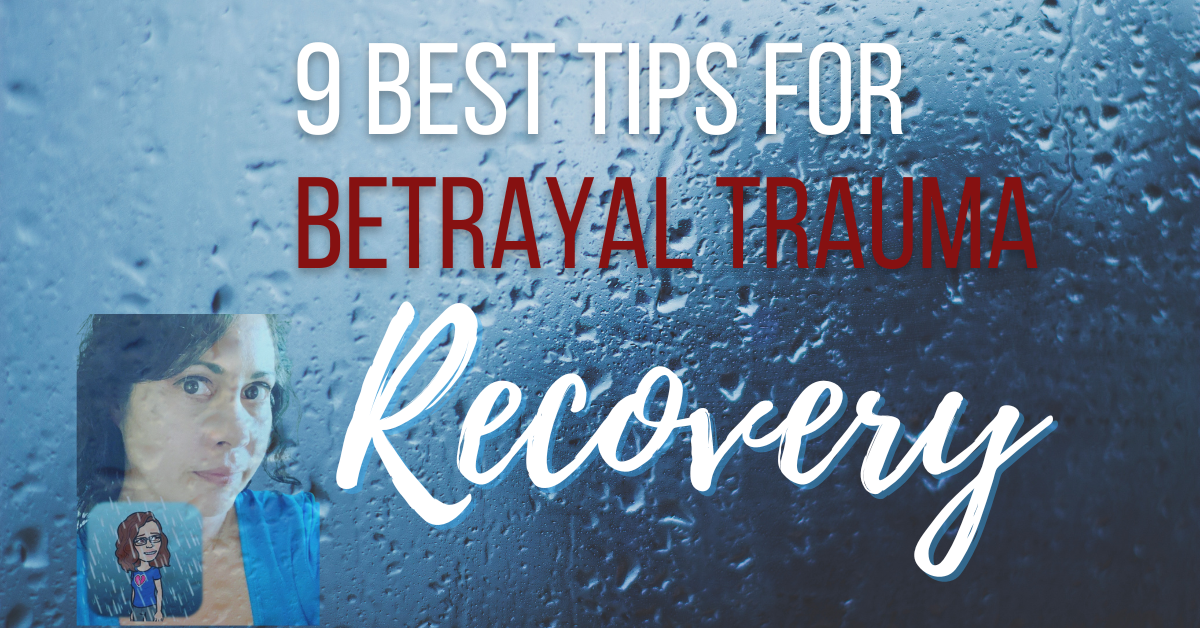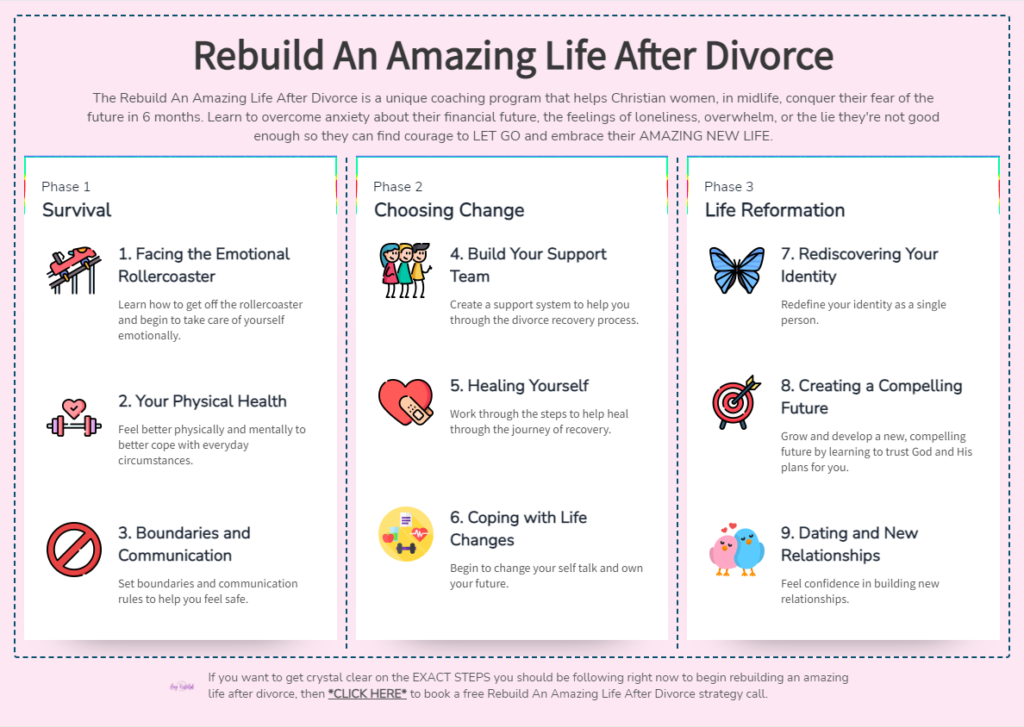I am a survivor and never would have thought I would be writing a post about sexual betrayal trauma recovery. Yet, here I am.
If you’re reading this and experiencing trauma, you’re not alone. I hope you will find some help in the resources below so you can begin to heal. Seek help! A lot of the groups I mention are online. I know it’s hard to leave your bed, let alone the house. Please do not stay isolated. Allow a safe friend to come over and take care of you.
If you’re reading this in hopes of helping a friend, please help them feel safe, provide support and validation. Make sure they are eating, sleeping and taking showers. Don’t try to talk “sense” into them. They are incapable of thinking logically, yet. They will be exhibiting symptoms of PTSD such as anxiety, depression, stress, numbness, grief, exhaustion, and fear.
What is Betrayal Trauma?
According to ChoosingTherapy.com, ““Betrayal trauma is a type of trauma that refers to the pain and emotional distress that occurs when a trusted institution, loved one, or intimate partner violates someone’s trust.”
I never saw it coming. You will hear those words a lot from women who have suffered some kind of trauma in their life. For me, it was one conversation that set it all in motion. One sentence that changed my entire future. You can read more about my story here.
In the days that followed, my world as I know it began to crumble. I began to doubt everything. PTSD was very real and the downward spiral was fast!
The very first thing you need to do is feel safe.
1. Find a Healthy Trauma Support Group
A healthy support system is an important step to betrayal trauma recovery.
It’s easy to begin to isolate yourself when you are suffering from PTSD and afraid that others will judge you or not be able to understand what you are going through. Many friends are unsure how to help you and end up avoiding any contact with you in fear of upsetting you further by saying something that would be inappropriate.
During one of my internet searches, which I know was led by the Holy Spirit, I found a group of women that were going through similar trauma. With their group sessions and ongoing support in a private Facebook group, I was able to find support, encouragement and education. Eventually, as I began to heal, I found I could help other women. I started a private community on Facebook with a positive group of Christian women. You will find support, encouragement and education. Click the image to join us.
Some churches are very supportive.
They will come alongside victims of adultery and show them immense love and compassion. Unfortunately, I experienced spiritual abuse in the form of judgementalism and legalism that further traumatized me. It was very painful, sent me further into isolation and added yet another layer of grief I needed to overcome.
I firmly believe Christian women can leave abusive marriages and not feel guilty about it. God cares more for the victim than the marriage. Some Christians and even pastors put a lot of shame on innocent victims in a divorce. It is almost as if they are idolizing marriage above a woman’s relationship with God.
2. Get a Physical
It’s important to take care of your physical health.
That’s why experts recommend getting a physical exam after finding out about your husband’s infidelity. “It’s not uncommon for women to experience a range of stress-related symptoms after learning their partner has been unfaithful,” says Dr. Sarah Jio, author of The Vow. “A physical can help rule out any potential medical causes for these symptoms.”
So if you’re feeling run down, or if you’ve been having trouble sleeping or eating, make an appointment with your doctor. It’s important to take care of yourself during this difficult time.
You need to know you are okay. It will help with your healing process. I remember how embarrassed I was to be at urgent care for this reason. This was not what I had planned for my life. The doctor was very kind and patient while I sobbed through the entire procedure. She even called me the next day to check on me.
3. Self-Care
You need to find a safe place you can go to everyday. The deck right off my dining room was very secluded with a view of our backyard. I spent many hours there everyday praying, crying, journaling and napping. Your safe place should feel relaxing. It should touch all of your senses.
I couldn’t get enough energy in the beginning to workout so I took walks. The physical activity was good for my body and my mind. I spent as much time as I could outdoors. For me it was healing. You may find Yoga is a good outlet for you. Try different things until you find one that works.
Later in my journey, when I was ready to move forward, I couldn’t find the grit I once had. I was described as sad during a job interview. This description wasn’t good, so I needed to do something radical. I reached out to a couple of friends for advice, and we devised a strategy to do a combination of acupuncture and hypnosis. I can never thank my friends enough for what they did for me. Thank you, Dr. Turley and Dr. Corum with True Health Chiropractic and Rehabilitation, and Jane Koenig and John Vurpillat with NWI Hypnosis Center, for what they did for me.
4. Betrayal Trauma Triggers
Betrayal trauma is a type of psychological injury that occurs when someone you trust violates your trust. If you have experienced betrayal trauma, you may find yourself feeling triggered by certain events or situations. While it can be difficult to manage these triggers, there are some things you can do to help cope with them.
One way to manage betrayal trauma triggers is to understand what they are and why they occur. This can help you to be more prepared when they happen and know how to best deal with them. Additionally, it is important to have a support system in place that can offer assistance and comfort during difficult times.
Finally, it is also beneficial to practice self-care. This may include things like exercise, relaxation techniques, and healthy eating.
I cut out a meme I found online and taped it in my journal. I didn’t keep the author or source at the time. If you happen to know, please allow me to give them full credit. This was very helpful for me.
How to Grow from Triggers
What is a trigger? An unhealed wound.
- Feel it and breathe and pause
- Observe (don’t react) even though this will feel highly uncomfortable.
- Re-program the subconscious. Affirm: “I am grateful for this emotion and what it can teach me.”
- Watch as you form a new relationship with emotions as a form of feedback.
- Release. Move forward.
5. Set Firm Boundaries
It’s not uncommon to struggle after divorce, especially if your former spouse is addicted to sex. Sex addicts can be manipulative and controlling, making it difficult for their ex-spouses to move on. However, it is possible to create boundaries that will help you heal from the pain of your past relationship.
Here are a few tips for creating boundaries with a former spouse who is a sex addict:
- Establish clear boundaries. Explain to your ex what behaviors are acceptable and what are not. Be assertive in setting these boundaries and don’t hesitate to enforce them if necessary.
- Keep communication to a minimum. You don’t need to share every detail of your life with your ex-husband. In fact, it’s often best to keep communication to a bare minimum. This will help reduce the chances of him manipulating or gaslighting you.
6. Keep a Journal
I have always kept a journal. It helped me cope with a lot of bad experiences in life.
So, it’s not surprising that I immediately turned to journal when trauma hit. Journaling and prayer were huge in my recovery process. Writing about my thoughts and feelings helped solidify my story and validate my feelings.
I found a small notebook in a daughter’s bedroom. I didn’t censor anything and I wrote how I felt and just let the words flow. Sometimes it made sense. Mostly, it was a way to vent or work through a situation that triggered me.
You can use any method of journaling that helps you get it out of your head. Some like to type in a Word or Google Document. Others use apps.
Here are some journal prompts to help get you started.
7. Find a Therapist Who Specializes In Betrayal Trauma Recovery
Betrayal trauma is a specialized area of therapy that can help you heal the wounds of betrayal and learn to trust again. A therapist or coach specializing in betrayal trauma can provide the expert guidance and support you need to heal and move forward.
I was fortunate to find a group of therapists online that specialized in my kind of trauma. I had a team to work with and give me the empowerment to move forward. You may want to meet with someone locally. I found a few options near me at Psychology Today.
8. Divorce Recovery
You may find yourself feeling lost and uncertain after ending your marriage. But there is hope.
I am a divorce recovery coach and I can help you get your life back on track.
In my coaching program, we will work together to identify your goals and create a plan to achieve them. We will also address any challenges you may be facing in your post-divorce life. Here is the roadmap to my Rebuild An Amazing Life After Divorce program.
If you’re ready to start rebuilding your life after divorce, I invite you to join my coaching program. Together, we can help you create the future you deserve.
9. Find a Prayer Partner
Having a group of women praying with and for me was powerful. Knowing I was having a horrible day, I could count on them to pray with me and get my mind in a better place. Thank you to all that stood by me during the most challenging time in my life and supported me with your powerful prayers. I love you all so dearly.
Most women I have talked to who have or are living with a sexual addict never intended to be divorced. I thought I had a strong, Christian marriage and fought to save my marriage but I was the only one trying. Eventually, I needed to face the reality of my situation.
I pray that every marriage could be saved as I know that is not God’s plan for marriage but He also made allowances for those who are victims.
Do not believe the lies that you must remain married to the one who betrayed you if he doesn’t wish to stay. The day he decides to walk out the door, you are set free. You are not an adulteress if you choose to remarry in your future.
I’m happy to say, my life is so amazing now. I am remarried to a strong, Christian man. My girls are doing great. It was a fight. We have persevered. If you are struggling with this trauma right now, fight for you. If you have children, fight for you.



